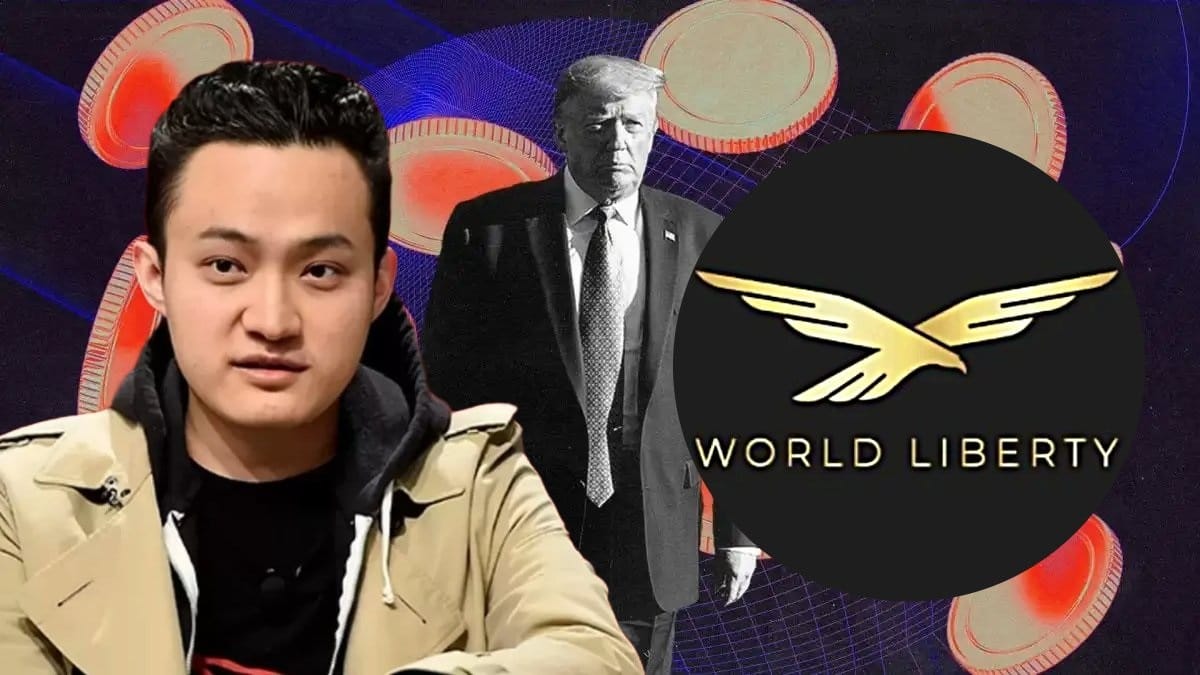World Liberty Financial Freezes Justin Sun’s WLFI Tokens, Sun Claims Innocence

World Liberty Financial, a DeFi project backed by the Trump family, has sparked controversy by blacklisting a wallet linked to Tron founder Justin Sun, freezing millions of dollars in WLFI tokens. The decision, which followed suspicious token transfers, has raised questions about the project’s commitment to decentralization and investor rights, with Sun publicly demanding the release of his frozen assets. As the WLFI token price struggles, the incident highlights tensions between centralized control and the principles of blockchain transparency.
On Thursday, September 4, 2025, World Liberty Financial blacklisted an Ethereum wallet associated with Justin Sun, a key investor and advisor to the project, after it transferred approximately 50 million WLFI tokens valued at $9 million. The action froze 540 million unlocked WLFI tokens worth roughly $107 million, along with 2.4 billion locked tokens, according to blockchain data from Arkham Intelligence. This move came amid a sharp decline in WLFI’s price, which dropped 20% from it's debut on September 1st, with it's current price sitting at $0.19, which is up 8% in the last day. The blacklisting has divided the crypto community, with some viewing it as a necessary response to potential market manipulation, while others see it as a betrayal of DeFi’s decentralized ethos.
Stay In The Loop and Never Miss Important Crypto News
Sign up and be the first to know when we publishJustin Sun’s Blacklisting Highlights WLFI Governance Challenges
Sun, who invested $75 million in World Liberty Financial and holds nearly $900 million in WLFI tokens, took to X to defend his actions, stating the transfers were routine exchange deposit tests involving small amounts and address dispersion, not buying or selling. On Friday morning, he doubled down on his support, posting that he believes U.S.-listed crypto stocks are undervalued and pledging to buy $10 million worth of ALTS and $10 million worth of WLFI to bolster the project’s ecosystem.
Responding to Nansen CEO Alex Svanevik’s post on the situation, Sun declared, “I am innocent,” urging the WLFI team to unlock his tokens and warning that unilateral actions risk eroding trust in the project. He further argued in a follow up post that these actions could not have impacted the market and called the freeze “unreasonable,” emphasizing that tokens are “sacred and inviolable” in blockchain systems. His plea for fairness resonates with broader concerns about centralized control in a project marketed as a DeFi platform.
The timing of the blacklisting coincided with significant market activity, including a transfer of 60 million WLFI tokens from an HTX-linked wallet to a Binance deposit address, raising suspicions of coordinated selling. HTX, where Sun serves on the Global Advisory Board, had also offered a 20% APY on WLFI deposits, fueling speculation about manipulative practices. Blockchain analytics from Nansen confirmed heavy exchange deposit flows, contributing to selling pressure that exacerbated WLFI’s price drop. Despite Sun’s denial of wrongdoing, the community remains skeptical, with some accusing him of leveraging the token’s Binance listing to offload assets.
World Liberty Financial has not publicly explained the blacklisting, leaving investors uncertain about the rationale behind targeting one of its largest supporters. The project’s governance model, structured as a Delaware non-stock corporation with a multisignature wallet controlled by its leadership, allows for such unilateral decisions, contradicting claims of decentralized governance, which is typically the pillar of decentralized finance projects.
The controversy has broader implications for WLFI’s credibility, especially as it begins to chart new territories in crypto and this politically charged landscape. WLFI aimed to capitalize on hype surrounding its Trump family connection and high trading volumes on exchanges like Upbit and Bybit. However, the token’s volatile debut, coupled with a 47 million token burn to stabilize prices, has shaken investor confidence. The blacklisting of Sun’s wallet has intensified scrutiny, with some analysts warning that it could set a precedent for targeting other investors, undermining trust in the project.
The irony of the situation is not lost, as Eric Trump, a key figure in WLFI, has cited the family’s own experience of being cut off by banks in 2021 as a motivation for entering the crypto space, as cited in the WSJ, when Trump said "several banks that the Trumps did business with cut them off, shutting down hundreds of accounts for the family’s businesses without citing an explicit reason." Yet, the blacklisting of Sun’s wallet mirrors the same exclusionary tactics, raising questions about the project’s commitment to equitable treatment and DeFi.
Sun’s history of controversies, including ongoing legal battles with the SEC, adds complexity to the situation. While he has been a pivotal backer, contributing $75 million and facilitating WLFI’s integration with the Tron ecosystem, his involvement has also drawn regulatory attention. The project’s decision to issue its USD1 stablecoin on Tron in 2025 further ties its fate to Sun’s reputation, raising questions about its long-term viability. As WLFI grapples with these challenges, the people will be watching closely to see whether it can uphold its promise of fairness and transparency or succumb to the pitfalls of centralized control.
More Bitcoin and Crypto News:
- President Trump To Host First White House Crypto Summit On March 7
- How Players Are Trying To Outsmart An Ai To Win 40 000 In Crypto
- Donald Trumps Media Venture Eyes Cryptocurrency Payment Service Called Truthfi
- Circle Secures Historic Approval For Usdc In Japan With Sbi Holdings Partnership
- Doj Targets 160 Million In Crypto Assets Linked To Ftx Bribery Scandal

